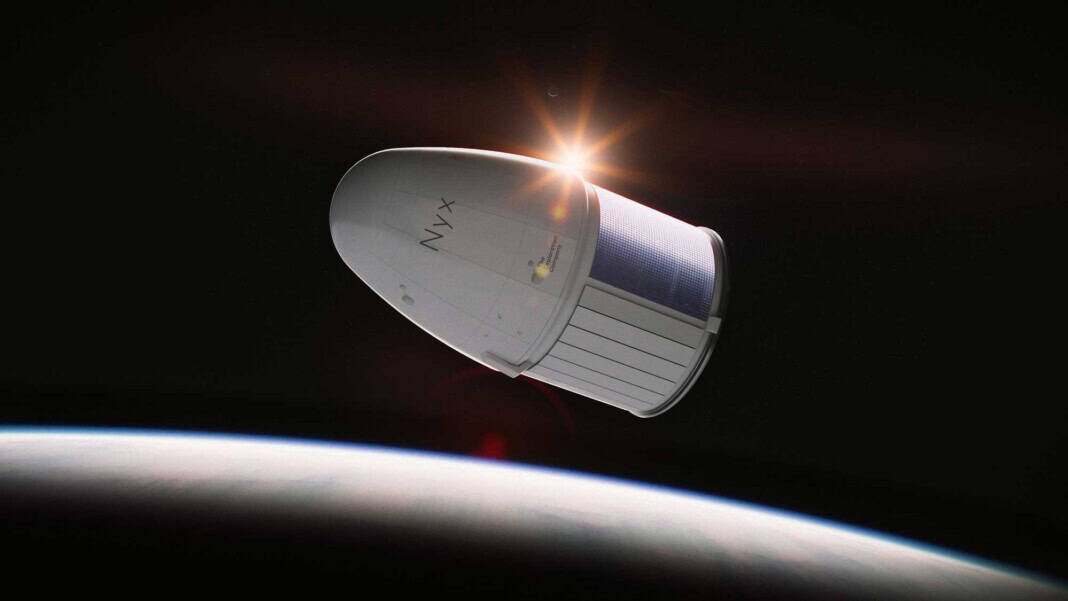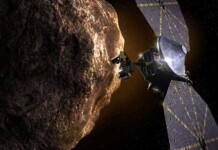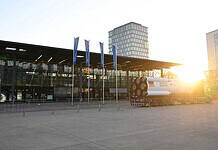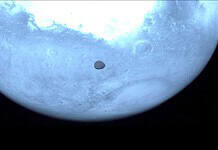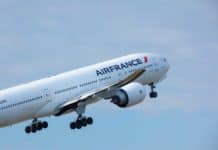This site is also available on:
Deutsch
The German Space Agency at DLR has purchased flights on the “Nyx” space capsule from the German company The Exploration Company (TEC). The contract was handed over on February 18, 2025 on the occasion of the DLR TecDays 2025 in Bonn. The Nyx capsule from The Exploration Company is intended to serve as a platform for experiments in space conditions.
Experiments in weightlessness are of essential importance for research in various areas. However, the possibilities for carrying out such experiments are limited. Therefore, the German Space Agency at the German Aerospace Center (DLR) has commissioned the German company The Exploration Company (TEC) to bring scientific experiments with a total mass of 160 kilograms into space on board its newly developed capsule “Nyx” – named after the Greek goddess of the night. A smaller version of the capsule with a diameter of 2.5 meters is expected to launch into space for the first time with customer payloads in the “Mission Possible” demo flight, probably in June 2025. From 2028, the space capsule will supply the International Space Station ISS with goods as part of a transport mission by the European Space Agency (ESA), and scientific experiments will be carried out during the flight. This means that TEC will be the first European and only German company to offer such flights.
Unique opportunity for experiments in weightlessness
Research has a great need for experiments in weightlessness in which effects can be observed that occur after several minutes and require an observation period of several hours to days. There is currently no European flight opportunity for experiments that require larger systems over 100 kilograms. In particular, transport flights to the ISS are currently only carried out by non-European providers, and re-entry capsules are also not available across Europe. Here the Nyx capsule will fill an important gap for European needs. Germany wants to advance research under space conditions in the areas of biology, medicine, human physiology, physics and materials research.
Radiation research from the Cologne-Bonn region on board
On board the Nyx demo mission “Mission Possible” in June 2025 will be a cooperation experiment between the Bonn-Rhein-Sieg University of Applied Sciences and the DLR Institute for Aerospace Medicine, which is funded by the German Space Agency at DLR. In the “RayPairNyx” project, mold spores are examined in space. During the test flight, the germination of radiation-stressed mold spores will be analyzed in microgravity in order to expand the understanding of fundamental mechanisms at the genetic and metabolic level. Examining mold spores under space conditions helps to assess possible risks posed by mold to the health of astronauts and life support systems in space travel. The experiment hardware is provided by another German start-up, Yuri-GmbH from Meckenbeuren. The results will be incorporated into the development of appropriate precautions and control measures to prevent or contain the harmful growth of mold in space stations or capsules.
The Nyx capsule
The Nyx capsule will have a diameter of four meters and will be able to carry a total of 4,000 kilograms of cargo in several experiments. Since it flies unmanned, it is ideal for automated payloads and also suitable as a “free flyer”. It will be transported to the ISS with the experiments and will return to Earth after a few weeks. The results are evaluated back on the ground. It can therefore also transport complex and therefore heavy or voluminous scientific experiments such as optical atomic clocks. Such experiments are intended, among other things, to support the development of the next generation of navigation systems. Cell biology experiments on fundamental questions from cancer and aging research are also planned.
Research under weightlessness
The German Space Agency at DLR currently offers parabolic flight campaigns twice a year, use of the drop tower in Bremen all year round and, as a rule, the flight of experiments on TEXUS sounding rockets for science every two to three years. On a parabolic flight, around 22 seconds of weightlessness are available, in the drop tower it is 4.5 to 9 seconds and on a TEXUS mission around six and a half minutes. Long-term research can be carried out on the ISS. The Nyx capsule will complete this excellent German space research. The German Space Agency at DLR is supporting the use of the Nyx capsule with funds from the Federal Ministry for Economic Affairs and Climate Protection.
DLR TecDays – a meeting point for the German space industry
The DLR TecDays 2025 will bring together the leading technology players in the German space industry in one place for the first time since 2019. On February 18th and 19th, 2025, over 300 representatives from industry and research will meet in Bonn with representatives of the European Space Agency ESA, the European Commission, the EU Space Program Agency EUSPA and the German Space Agency at DLR to exchange ideas about research and development in space technology. On the one hand, in the old Bundestag plenary hall at the World Conference Center Bonn, the funding programs of public institutions will be explained in order to network the German space industry even more closely with Europe. On the other hand, companies and research institutions have the opportunity to present themselves and their portfolio to other participants and to forge collaborations for the future.

